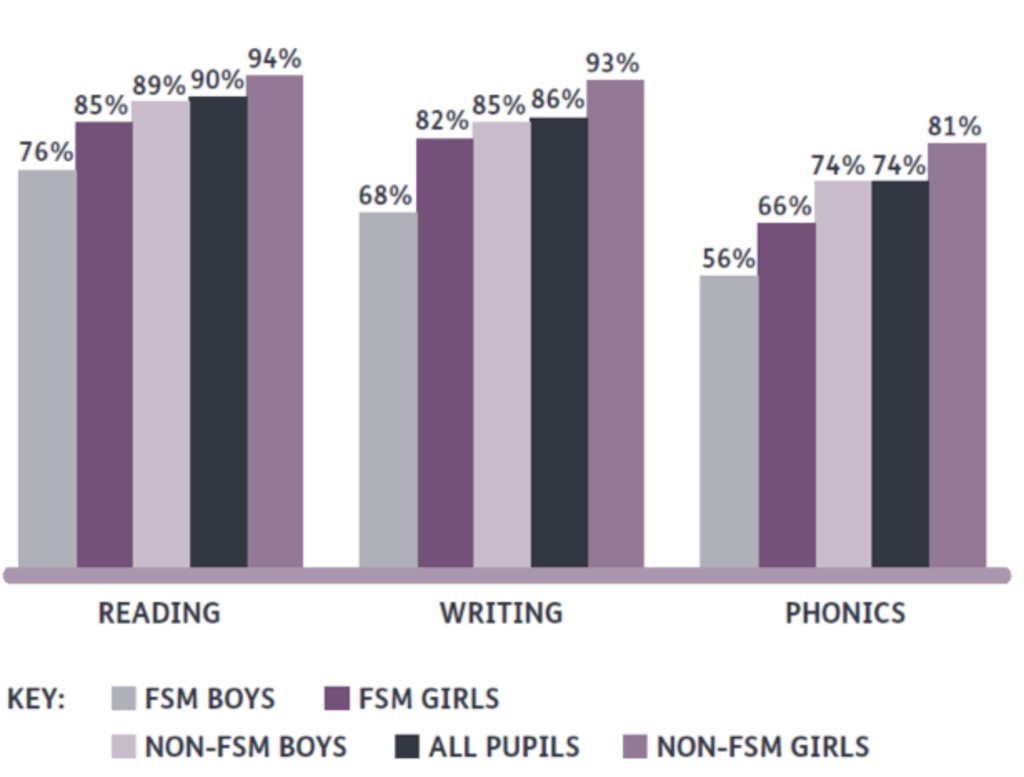
Becoming a lifetime reader is dependent on developing a love of reading1 and few would argue against the fact that the ability and motivation to read impacts on the life chances of all children.
For this reason, a significant amount of effort and resource is put into primary schools in the teaching of reading and the system of teaching synthetic phonics is almost universally adopted as being the most effective approach. However, the fact remains that some children are not making the progress they should be and there are stark inequalities in the attainment findings and almost 148,000 children leave primary school in England unable to read well.2 Boys, and those children on free school meals are less likely to reach the expected levels than their peers across all modules of communication and language.3 There are those who argue that there will always be some children that do better than others, as we are not all born with the same levels of intelligence, but this isn’t an intelligence gap, it would be ludicrous to argue that boys or those from poorer households are less intelligent, but nevertheless they are falling behind and poverty should never be used as an excuse for failure.

Every teacher recognises the children that come in to school ready to read. They can speak fluently listen attentively and engage and respond. They sit still, do well at phonics and build up a good sight vocabulary of tricky words, generally they make good, steady progress. They usually have smart book bags that come back and forwards every day and reading records that are filled in by parents that show an interest; these children become good readers almost naturally.
Then there are those that are not ready, the ones who have a limited vocabulary, find it hard to listen and concentrate, don’t pick up phonics or key words quickly and often forget their book bag or it’s clear no one has read with them at home. Is it the fault of the parents? This is certainly the view of some teachers who sigh at the lack of the book bag coming into school, or the one that is transported to and from school without it ever being opened in the home.
The evidence is clear that the parental role is hugely important in developing children’s attitudes to and skills in reading:
“Early reading experiences with their parents prepare children for the benefits of formal literacy instruction. Indeed, parental involvement in their child’s reading has been found to be the most important determinant of language and emergent literacy (Bus, van Ijzendoorn & Pellegrini, 1995). Furthermore, parents who introduce their babies to books give them a head start in school and an advantage over their peers throughout primary school (Wade &Moore, 2000)”4